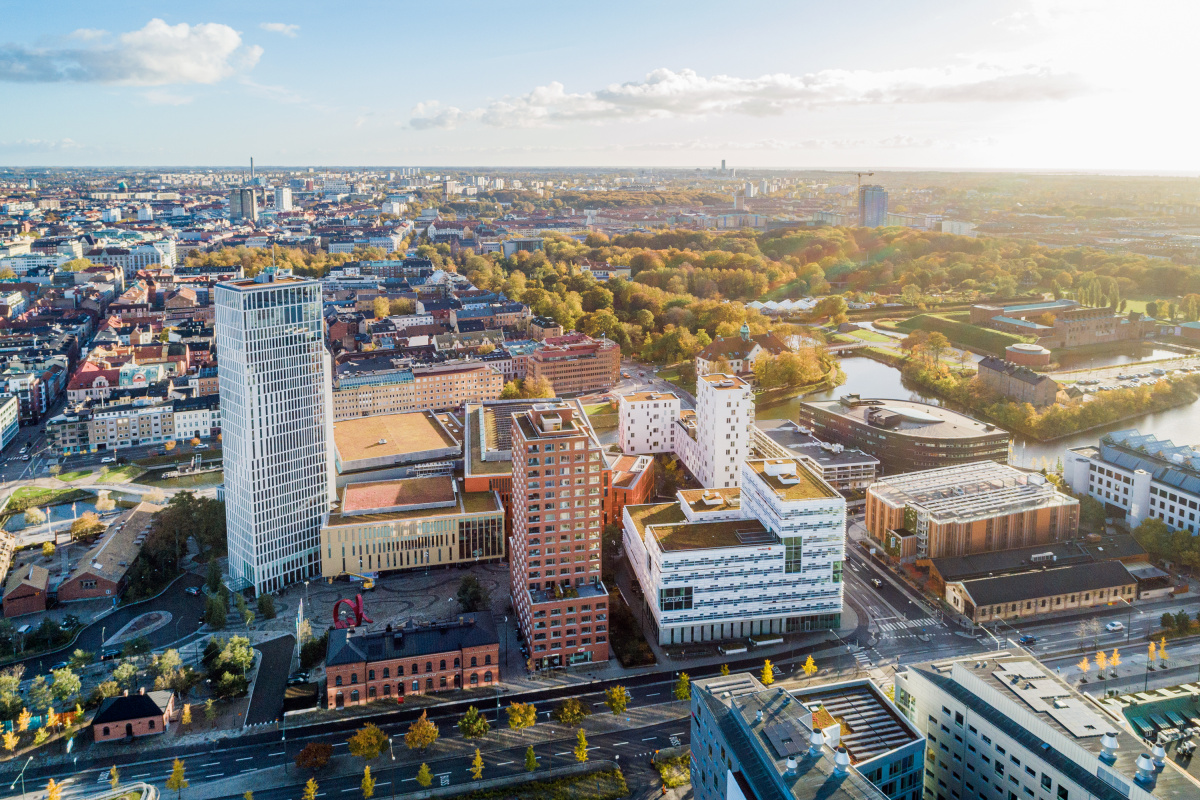
Malmö Resilience Hub
Since 2022, Malmö is a Resilience Hub within the Making Cities Resilient 2030-campaign, a UN initiative for improving local resilience.
Resilience refers to the ability of a city to anticipate, withstand, adapt to, and recover from shocks and disturbances, such as extreme weather events, economic downturns, or other crises.
As a hub, Malmö intends to share knowledge and experience with other cities and form partnerships with actors to accelerate the race to resilience.
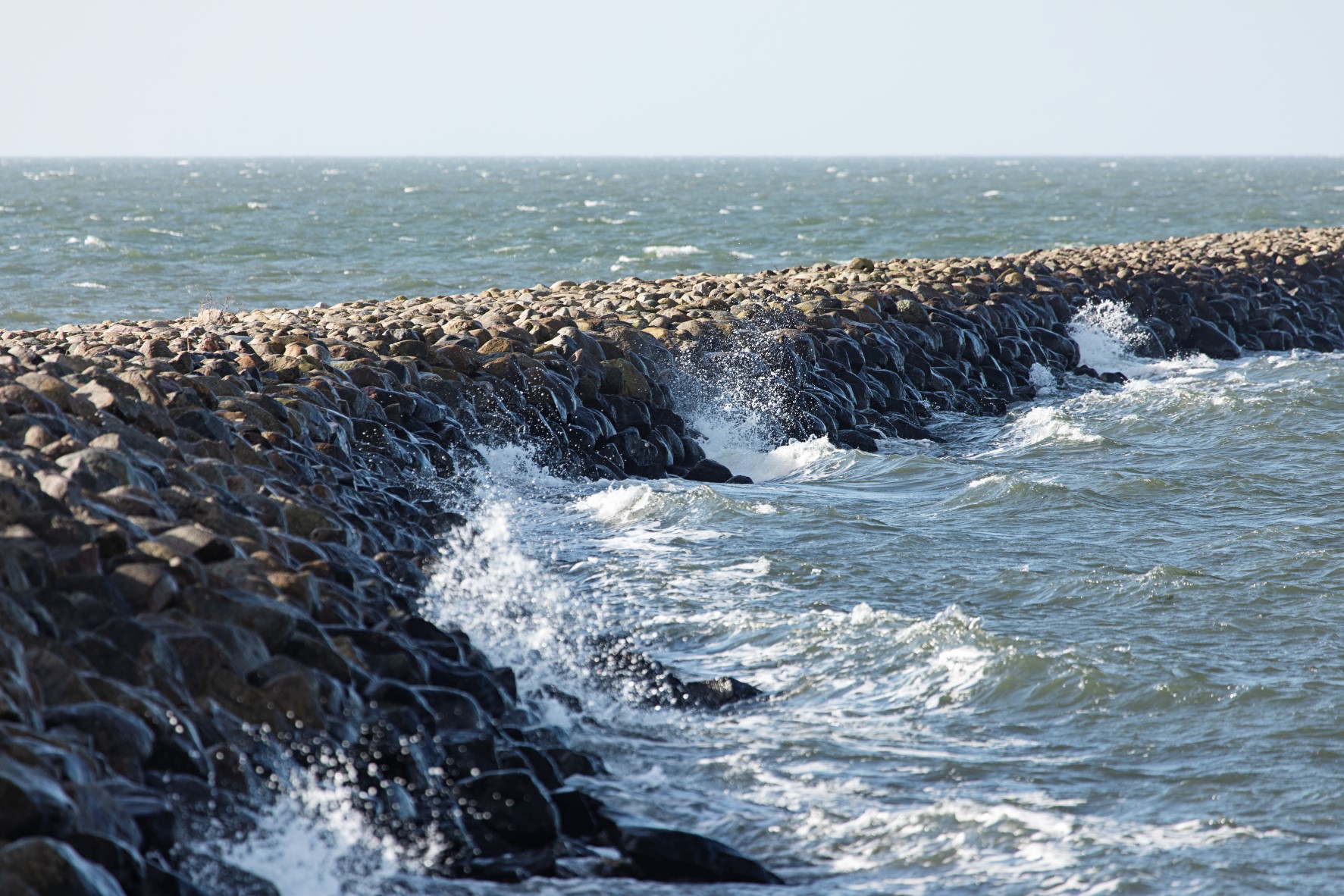
Climate resilience
In the context of climate change, resilience refers to the ability of a community or society to withstand the negative impacts of climate change, such as heat waves, sea level rise, and increased frequency of extreme weather events.
Following an intense cloudburst event in 2014, Malmö has carried out several projects to adapt the city to more frequent and intense weather events. The city has adopted a cloudburst-plan and is currently developing a strategy to adapt to sea level rise and storms.
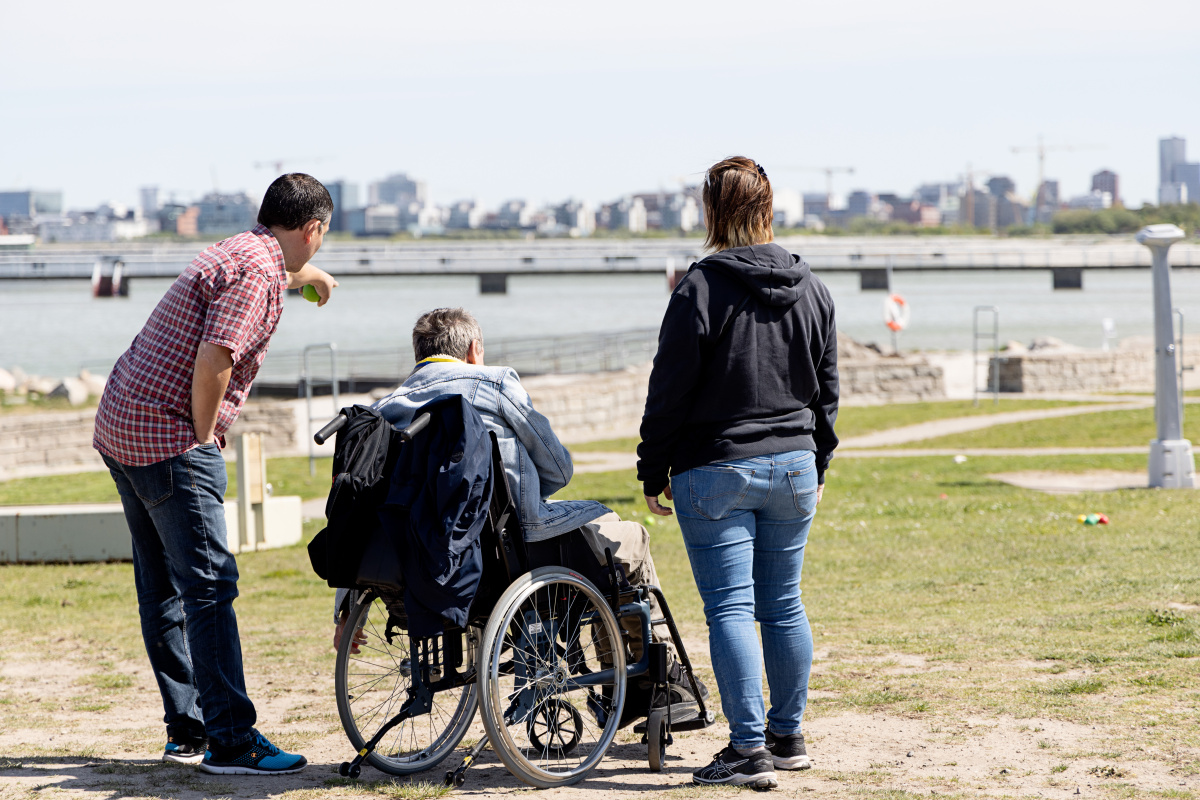
Social resilience
A resilient city must identify and assess a diverse range of risks and vulnerabilities to design and implement risk-reduction measures and increase the city’s capacity to adapt to changing conditions. Malmö works on an all-hazards approach and make plans to maintain the municipality’s core services in times of crisis.
Its resilience builds on the Swedish welfare system which provides a network of social and economic security which makes the city more resilient.
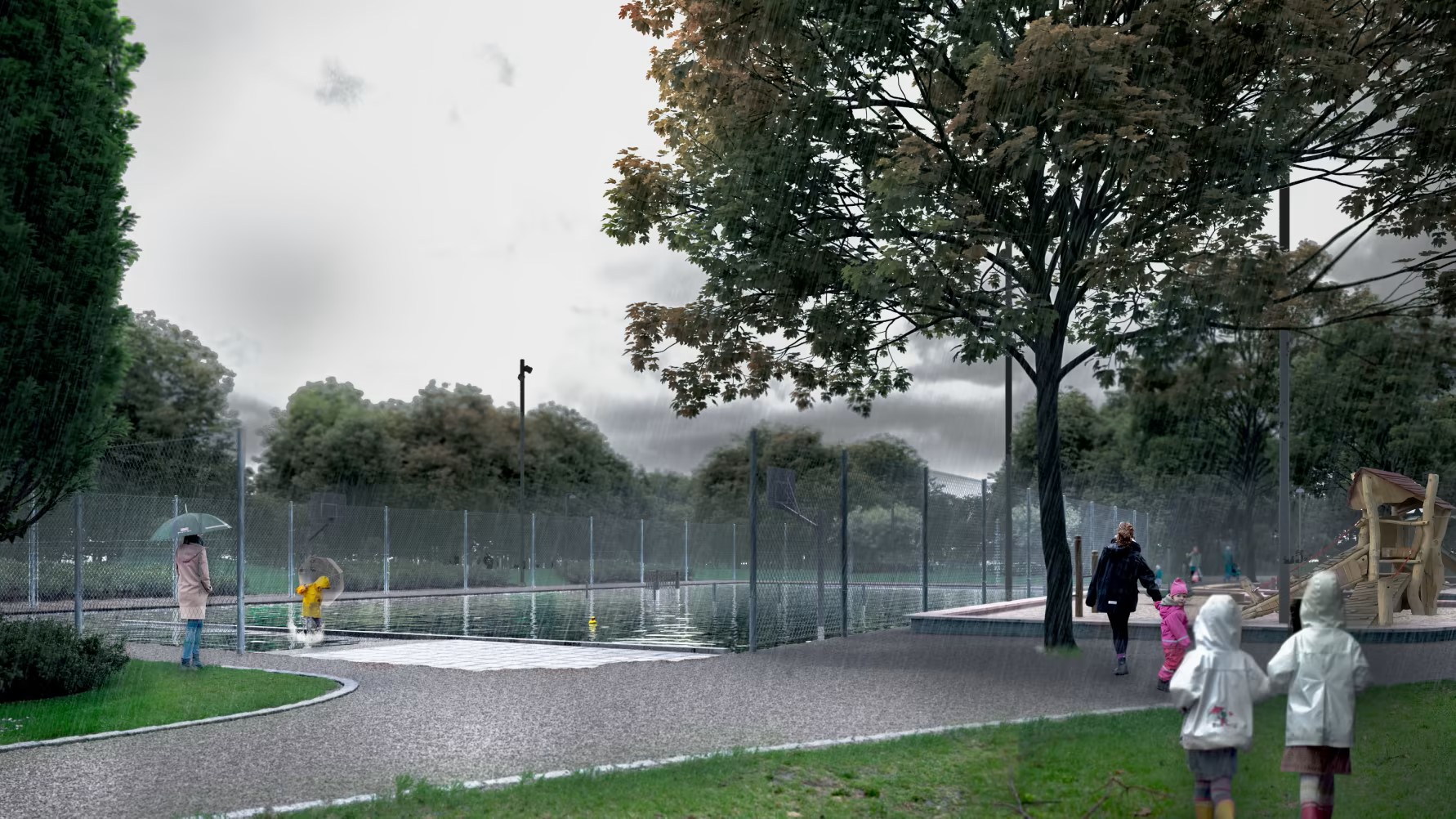
Söderkulla - resilient city planning
The Söderkulla district experienced heavy floods during the 2014 cloudburst event. To make the area more resilient to extreme weather events, the area’s parks were lowered so stormwater could be directed there during heavy rains.
The city took the opportunity to also revitalize the park, adding a basketball court, an outdoor gym and planting new trees. By improving the area’s public spaces, the social resilience of the community is improved while decreasing climate-related risks.
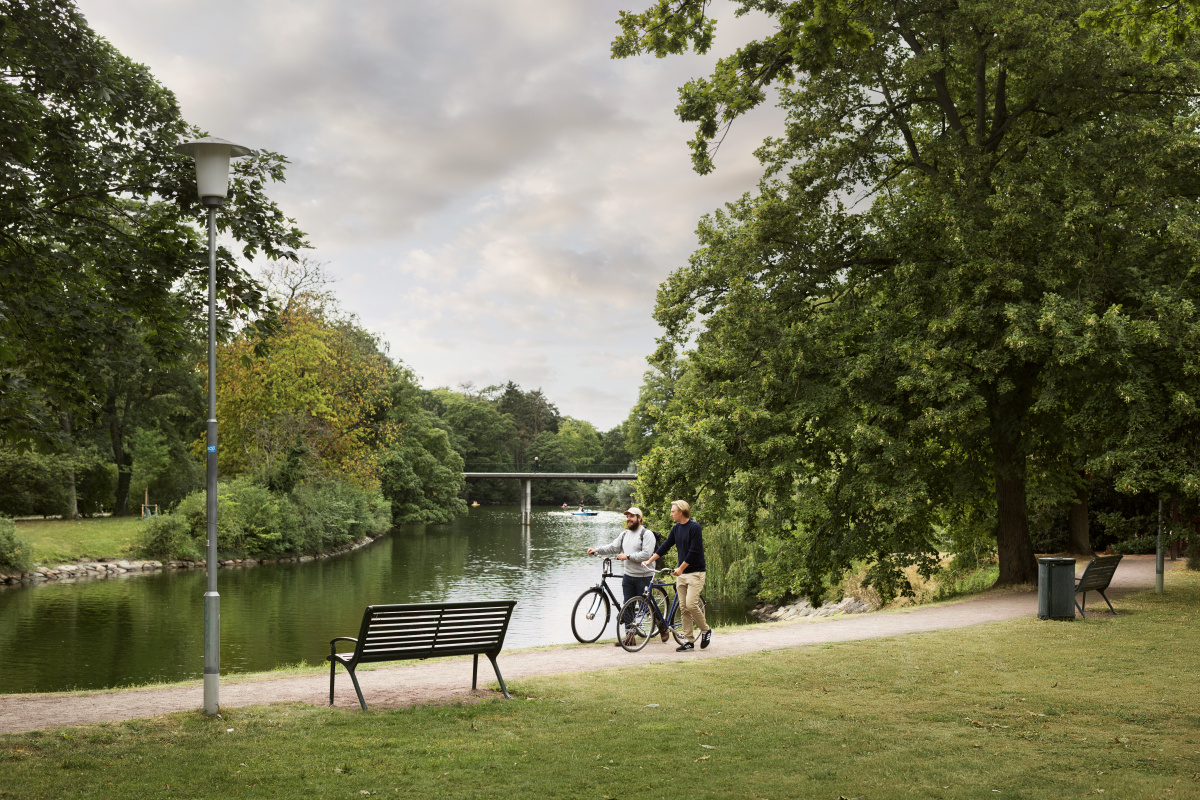
Diversity for resilience
Trees are vital for a city’s resilience to climate change. However, planting too many trees of the same species makes a city vulnerable to pests and diseases that might turn the city from green to grey.
Like many other cities, Malmö was heavily impacted by Dutch elm disease. Over 40 000 trees were lost to the pest. Climate change increases the risk of novel pests and pro-longed droughts can make trees more vulnerable to infection. That’s why Malmö is working to diversify its urban forests by planting a range of domestic and exotic species.
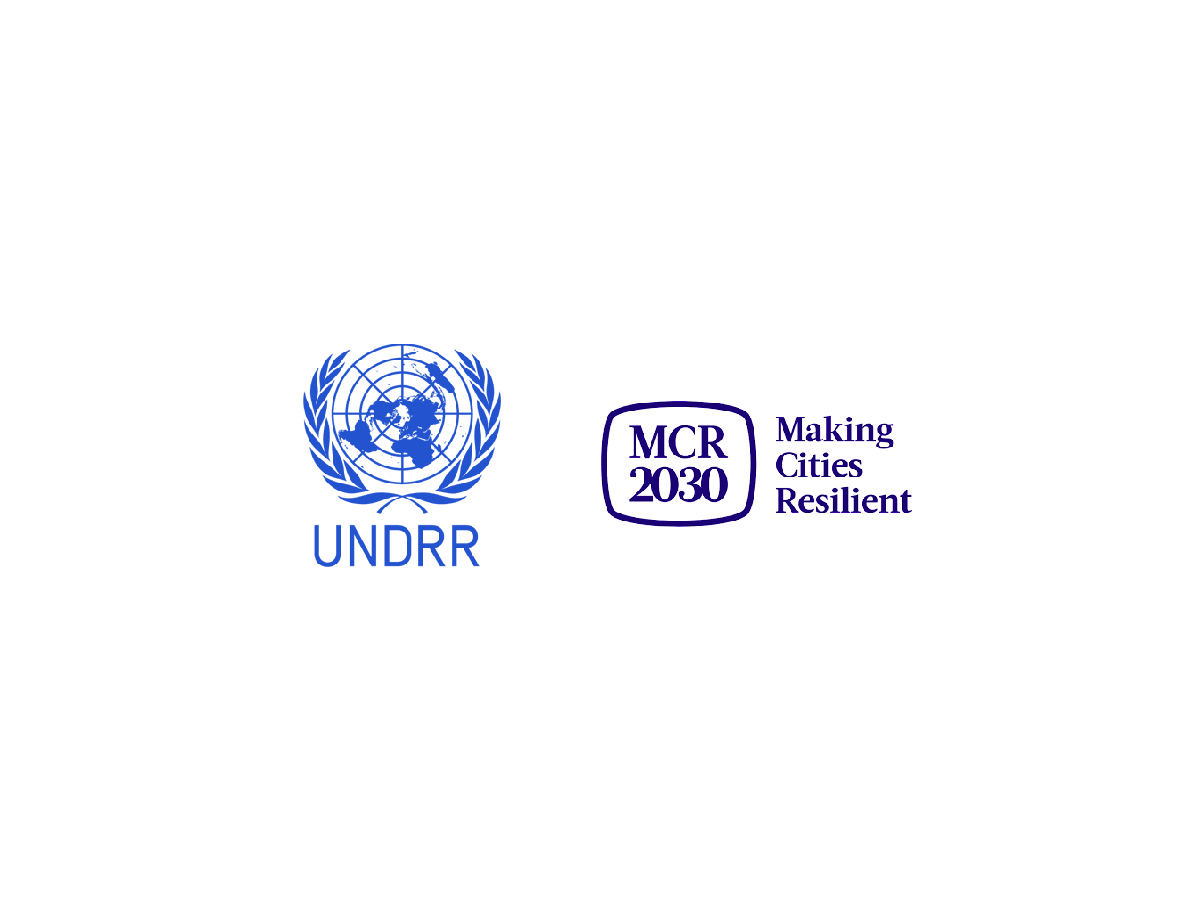
Get in touch
Please reach out if your city is interested in collaborating. Find more information about our activities on the MCR2030 dashboard.